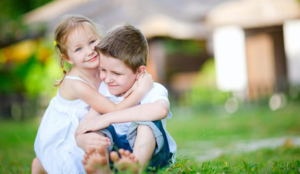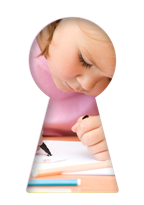Parenting Issues as a Result of Long-Haul COVID-19
Have you been feeling lately like your kids need you more than ever?

Are they asking when you and they will get all their vaccinations?
Do they question when they’ll go to school all the time and not take quarantines at home anymore?
Are they frustrated with online learning?
Do they miss their friends – Dungeons and Dragons – Visiting other kids in the cul-de-sac – Dinner at the neighbors – Grandma and Grandpa?
With COVID restrictions stretching on and on without an expectation of stopping even after vaccinations when masks are still to be worn, parenting has taken on a new dimension.
Kids At Home Become Resourceful–Sometimes

Kids in some ways, home so much, are becoming resourceful. Ten-year-olds learn to bake and cook dinner. Thirteen-year-olds going to school online share an office with their fathers working at home and increase their ability to concentrate for hours.
But these thirteen-year-olds also brood. Hormones are changing and they need to get out more. They socialize online – wear masks staying at a distance and talk to other kids outside. But it’s not the way it’s supposed to be. Parents know it. And kids know it.
What are the New Parenting Issues?

Sibling loves and quarrels are shifting
- Discussing with kids feelings of isolation.
- Budding anxiety about leaving home that was never there before.
- Listening to fears of death and dying.
- Confusion about how and if to limit screen time when now it’s the only social time.
- Helping all family members share their living space for many more hours than before.
- Siblings arguments that have shifted from ‘regular’ stuff about chores and sharing to rough housing getting more out of hand because frustrations rise more easily just because of being together too much.
- A new wave of temper tantrums and cursing by previously well-mannered teens who are sick of feeling over-controlled by parents because everyone’s confused about house and apartment rules now that everyone is home so much, especially in this cold, snowy winter.
- Parents worry about their kids (and themselves) gaining weight due to less exercise and more snacking, so decisions are tossed around about food choices and even some gym equipment there isn’t room for or money for.
- Sleeping routines that were well-established get lost and found again.
- Money worries have escalated, and the kids know it, feel it, and worry about their parents constantly talking about it.
- Kids are watching or at least hearing the news too often just because they’re home more and their parents are over attached to their remotes to get the latest about vaccines and shifting politics (even though many new directions are positive and even though now we have an empathic President modeling for parents how to set new rules and accept new emotions).
- Learning to listen attentively has taken on a new dimension for parents because of all these new issues sprouting up regularly.
- Adjusting to change and transitions feels chronic because sometimes schools are open and sometimes not depending on your geographic area and new cases of viruses compelling teachers to stay home.
Kids Who Lack Skills in Coping with Frustration are At High-Risk

“I have a distinctive child.”
So if you had kids who had trouble coping with transitions and frustration before, the problem has escalated.
Some kids have more difficulty than others responding amicably to unpredictable, uncertain, and ambiguous situations that the Pandemic has escalated.
These children in particular are experiencing enormous frustrations struggling to apply old rules to a world where few of those old rules apply consistently.
These are kids not good at handling frustration, at being flexible, or solving problems. These are NOT bad kids. They are distressed kids without skills.
It’s incorrect and actually terribly misleading to call them Attention-Seekers, Manipulators, Lazy, Unmotivated because then we lose sight of what’s going on.
They are begging to learn how to think before they act, not to draw conclusions quickly, consider options under stress, seek help from trusted adults. These skills just plain don’t come naturally to these kids and COVID-19 escalates the need for these skills.
Parenting Tips for these Kids During COVID-19 Uncertainties
1. empathize with how hard it is to cope with rapid change
2. at a quiet moment let kids in on the secret others know–that sometimes one solution isn’t the only one–there might be options to consider.
3. empathize that kids no longer know what is expected of them because the situation changes daily
4. relax expectations to reduce anxiety in yourself and your kids when day to day routines change
5. consider that your child is the best source of information about why it’s difficult to meet changing expectations
6. expand your kids list of unsolved problems so they can be handled one at a time.
Just saying getting homework done is a problem doesn’t solve anything—but if you help your son with one subtraction exercise you will be focused and so will your child.

The problem list will get longer and longer but solved more easily because it’s broken down into manageable pieces and no one is blaming anyone or calling them misleading negative names that only increase anxiety and interfere with gaining skills to cope with frustrations.
Reconsider the expectations you have for a frustrated child with lagging skills in regulating their emotions.
Openly discuss together what set off some yelling and complaining without parental judgment and without parents yelling back and by waiting for a quiet interlude.
It’s hard and takes patience, but it will pay off big time in the long run.
